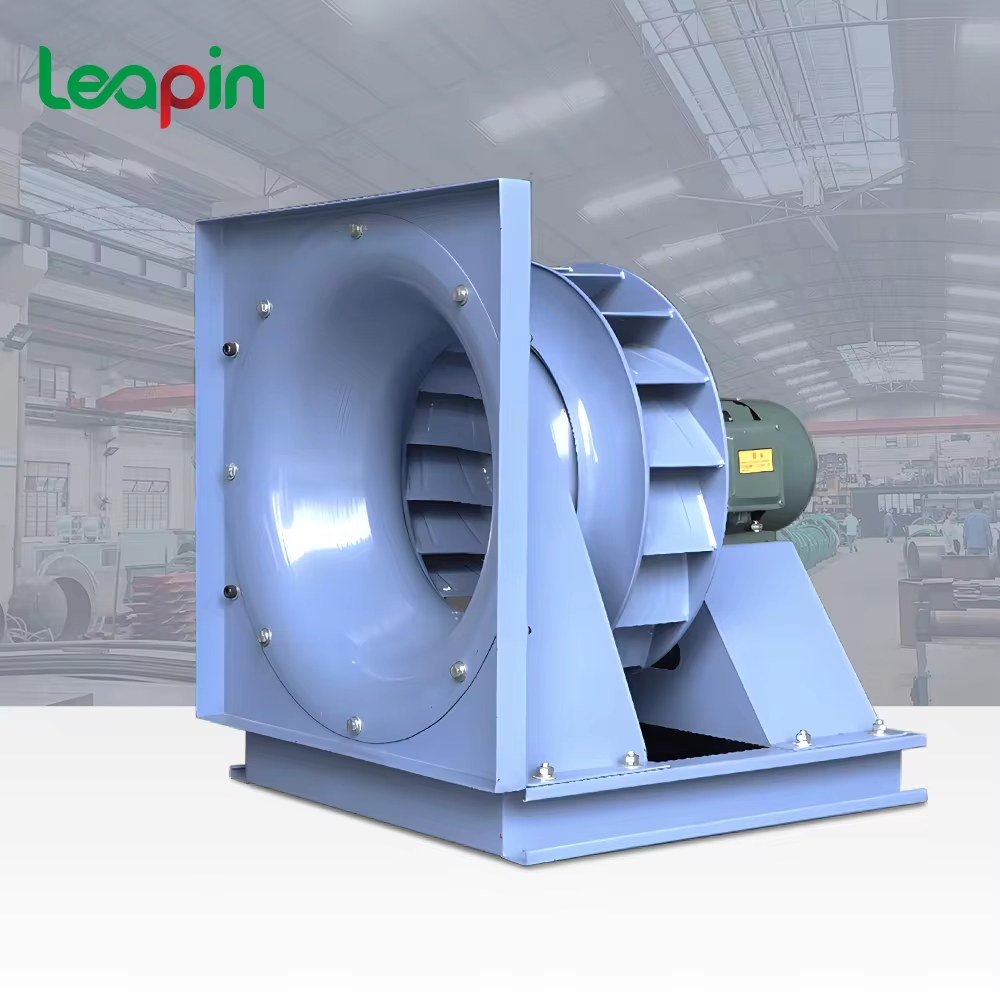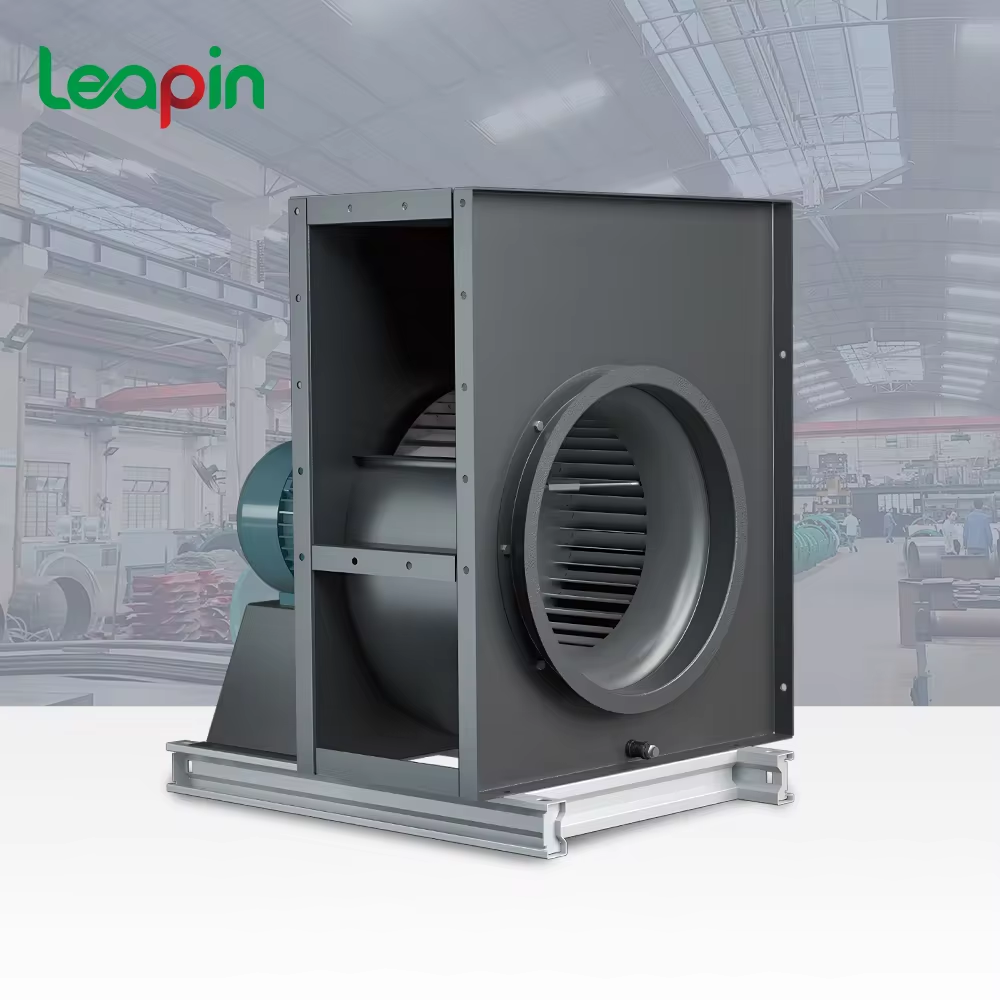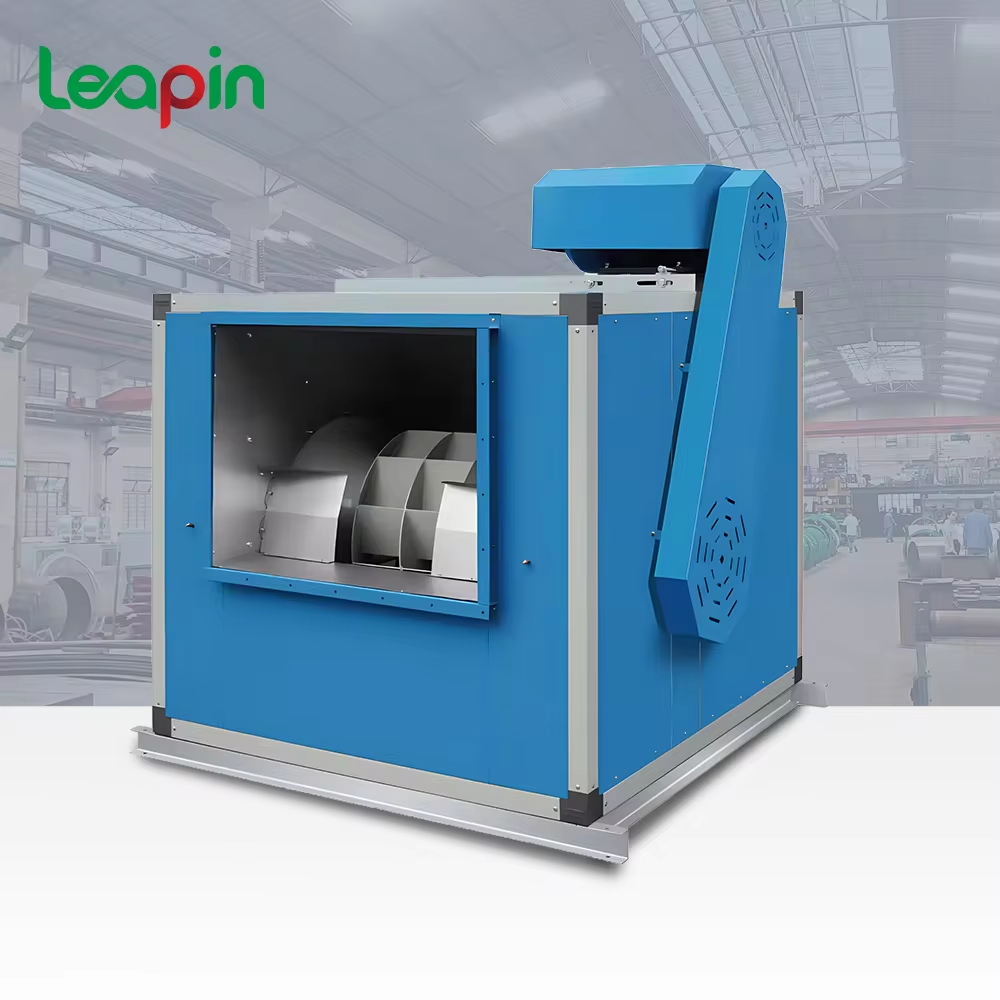Innovative Features of Modern Industrial Fans
Core Technological Advancements in Modern Industrial Fans
High-Efficiency Impeller Designs
High-efficiency impeller designs are transforming modern industrial fans by maximizing airflow while significantly reducing energy consumption. These advancements in fan design engineering showcase a trend towards optimizing performance without increasing operational costs. Manufacturers like Green Fan Industries have been at the forefront, innovating impeller technology that boosts airflow optimization. Studies show that fans equipped with these advanced impeller designs outperform traditional models in both efficiency and durability, evidenced by performance improvements and enhanced lifespan metrics. This evolution signifies a shift towards more sustainable industrial practices by leveraging technological advancements to reduce energy footprints.
- Modern impeller designs maximize airflow and reduce energy consumption.
- Key manufacturers have pioneered high-efficiency impeller technology.
- Studies illustrate performance improvements with advanced impeller designs.
Compact Structural Engineering
Compact structural engineering principles are pivotal in creating smaller, more efficient industrial fans that don't compromise on performance. These fans are particularly beneficial in tight manufacturing spaces, offering solutions to reduce installation and maintenance costs. By adopting compact fan designs, industries can significantly lower material usage, aligning with sustainable manufacturing practices. The ability to maintain high performance in reduced space not only saves on real estate but also reduces the environmental impact associated with material consumption. Such structural innovations are crucial for businesses aiming to adopt more efficient and eco-friendly industrial operations.
- Compact fan designs allow efficiency in tight spaces without compromising performance.
- Examples show reduced installation and maintenance costs with compact designs.
- Compact designs lead to sustainable practices by reducing material usage.
Advanced Material Applications
Advanced material applications in fan construction enhance durability and performance by utilizing composites and lightweight alloys. Fans constructed with these modern materials exhibit increased longevity and performance efficiency, backed by statistics highlighting significant operational efficiency gains. Industries benefiting from improved material applications experience enhanced durability, reducing the need for frequent replacements and downtime. These materials not only strengthen the integrity of the fan but also contribute to reducing the overall carbon footprint. By adopting advanced material technology, industrial sectors can ensure their operations are both efficient and sustainable over the long term.
- Advanced materials, such as composites or alloys, enhance durability and performance.
- Statistics show increased longevity and performance efficiency with these materials.
- Case studies illustrate operational efficiency gains from improved material applications.
Energy-Efficient Industrial Fan Solutions
EC Motor Integration
Electronically Commutated (EC) motors are revolutionizing industrial fan energy efficiency. Unlike traditional motors, EC motors use integrated electronic controls to regulate motor speed and power output. This technology significantly reduces energy consumption, offering potential savings that are increasingly attractive to industrial applications. For instance, studies show that EC motors can decrease energy use by up to 50% compared to conventional motors, making them an excellent choice for cost-saving and sustainable operation.
Moreover, market trends indicate a growing adoption of EC motors in industrial settings, driven by their efficiency and reliability. As industries strive to meet stringent energy standards, the integration of EC motors is becoming widespread. Analysts forecast that the demand for EC motors will experience robust growth, fueled by their compelling advantages in operational contexts where energy efficiency is paramount. The transition towards these motors epitomizes the industry’s commitment to sustainability with tangible benefits for companies aiming to reduce their environmental footprint.
Variable Speed Control Systems
Variable speed control systems present innovative methods of enhancing industrial fan performance to meet specific operational needs. These systems allow for adjustable fan speeds, enabling precise airflow control and improved energy efficiency. By modulating speed based on real-time requirements, users can optimize fan operations and minimize unnecessary power consumption. For example, in a manufacturing plant, variable speed controls can adapt fan activity to the varying intensity of processes, ensuring energy isn’t wasted during low-activity periods.
The cost savings and energy reductions from employing variable speed technology are significant. Data suggests that introducing these systems can result in energy cost savings of up to 40%, providing substantial long-term financial benefits. Moreover, diverse industrial settings, from warehouses to production facilities, are leveraging these systems to improve operational efficiency and achieve better airflow management. This adaptability underscores the crucial role variable speed systems play in fostering operational excellence while contributing to sustainable practices.
Power Consumption Optimization
Optimizing power consumption in industrial fans involves both regular maintenance practices and smart technologies. Ensuring fans are well-maintained can prevent them from consuming excess energy, while advanced technologies can provide real-time data to track and manage power use effectively. Strategies such as updating equipment, using energy-efficient components, and timely service checks can substantially decrease energy usage, providing both environmental and economic benefits.
Figures indicate that implementing power optimization strategies can lead to a 20–30% reduction in power usage. This reduction is not only crucial for lowering operational costs but also for complying with increasing energy regulations. Recent research highlights the importance of power consumption tracking in reducing operational expenses and promoting sustainable resource management. Through these strategies, businesses can harness technological advancements to improve efficiency and drive down costs, showcasing smart power management's pivotal role in modern industrial operations.
Industrial Fan Innovations in Noise Reduction
Soundproof Casing Technology
Soundproof casing technology has become a revolutionary solution for reducing noise pollution from industrial fans. By encasing the fan in specialized materials, this technology effectively minimizes noise emissions, creating a quieter workplace. Various industries, such as manufacturing and warehouse facilities, benefit from this innovation as it can lead to enhanced employee productivity. For instance, a study showed that a reduction in ambient noise by just 5 decibels can improve concentration and efficiency significantly. Moreover, comparative analyses highlight that soundproof casings can achieve much lower noise levels compared to traditional designs, making them a valuable addition to noise-prone environments.
Aerodynamic Noise Minimization
The integration of aerodynamic design principles in industrial fans plays a critical role in minimizing noise emissions. These designs are crafted to optimize airflow efficiency, reducing turbulence and thus, the noise generated by fan operation. Data corroborates that smoother airflow not only diminishes noise but also enhances the fan's overall performance. Case studies reveal that firms adopting aerodynamic innovations, such as contoured blade shapes, experience a notable decrease in operational noise, leading to a more conducive work environment. These developments underscore the importance of balancing functional efficiency with acoustic comfort.
Vibration Dampening Mechanisms
Modern industrial fans are now equipped with sophisticated vibration dampening technologies, which significantly reduce noise and enhance the longevity of the equipment. These technologies involve the use of materials and structures that absorb and dissipate vibrational forces. Statistics show a considerable decrease in maintenance requirements and equipment damage in fans with effective vibration dampening. Real-world examples, such as those in high-vibration environments, demonstrate that successful implementation of these mechanisms not only improves durability but also ensures uninterrupted productivity. The reduction of vibration-induced noise contributes further to the quiet and efficient operation of industrial fans.
Modern Industrial Fan Product Highlights
PF Series Box-type Fan Without Shell
The PF Series Box-type Fan is designed with a shell-less structure to optimize airflow and offer heightened performance in various industrial applications. This unique design addresses the need for simplicity, compactness, and operational efficiency, making it a preferred choice for businesses seeking to enhance their ventilation systems. Its high static pressure efficiency and low noise operation are among the notable performance metrics appreciated by industry users. Many businesses have reported substantial efficiency gains and positive user experiences with the PF Series fan. The fan's ability to provide arbitrary discharge direction and a compact size contributes significantly to its popularity in industries ranging from air conditioning equipment to building ventilation.
FCS-A Series Centrifugal Fan
The FCS-A Series Centrifugal Fan boasts features that make it versatile across a multitude of industrial sectors. Known for its high airflow and pressure capabilities, this fan series ensures optimal ventilation in demanding environments. Users have shared testimonials highlighting the fan's reliability and efficiency. Additionally, when compared to other fan solutions, the FCS-A Series demonstrates superior energy usage, helping industries achieve significant cost savings. The model's design flexibility, with adjustable airflow angles and convenient maintenance, enhances its appeal as a robust choice for industrial applications.
LT-BC Series Cabinet Fan
The LT-BC Series Cabinet Fan is recognized for its compact design and versatility, offering substantial advantages to businesses requiring efficient ventilation solutions. This series is economically beneficial due to its space-saving attributes and cost-effectiveness, further amplified by its efficient performance. Companies utilizing the LT-BC Series report high levels of satisfaction, highlighting the fan's capability to meet diverse application needs while maintaining affordability. Statistical evidence underscores its broad customer reach and substantial impact on operational effectiveness, reinforcing the advantages of investing in this high-performing industrial fan.
CDC-E Series Silent Fan
The CDC-E Series Silent Fan is designed to thrive in environments where noise reduction is paramount, melding advanced technology with practical innovations. Clients have consistently reported that the CDC-E Series greatly enhances comfort and productivity in the workplace, minimizing distractions attributed to fan noise. Figures indicate a successful reduction in noise levels compared to traditional fan models, making the CDC-E Series a staple in noise-sensitive settings like hospitals and office buildings. With a focus on maintaining workplace comfort, this fan series exemplifies the balance between technical advancement and user downtime.
Industrial Fan Maintenance Innovations
Modular Component Design
Modular component design is revolutionizing maintenance for industrial fans by simplifying processes and reducing operational disruptions. By utilizing standardized parts that can be easily replaced or reconfigured, businesses experience significant reductions in downtime. A study showed that companies implementing modular designs cut maintenance times by up to 40%, leading to substantial cost savings. Case studies from various industries highlight these benefits, with a notable example being a manufacturing plant that reduced its maintenance costs by 25% after adopting a modular approach. The streamlined process not only boosts repair efficiency but also enhances overall system reliability.
In addition to the aforementioned efficiency gains, modular design principles foster an environment where maintenance staff can be more proactive rather than reactive. The simplified interventions mean that potential issues are addressed before they escalate, contributing to improved safety and operational continuity. Industrial settings that prioritize such innovations report increased uptime and better resource allocation, with significant implications for business sustainability and growth.
Corrosion-Resistant Construction
Corrosion-resistant materials have become a game-changer in the longevity and reliability of industrial fans. Utilizing materials such as stainless steel and specialized coatings, these fans are designed to withstand harsh environments, leading to a decrease in maintenance demands. Statistical evidence supports this innovation's efficacy, with fans constructed from these materials experiencing failure rates reduced by up to 50% compared to traditional designs. This durability translates into extended lifespans, ensuring a more resilient infrastructure amidst demanding operational conditions.
Expert opinions emphasize the long-term economic benefits of investing in corrosion-resistant fans. Savings on maintenance and replacement costs, coupled with enhanced reliability, make this a financially sound decision. Industry leaders highlight that the initial investment in these advanced materials is offset by improved efficiency and fewer breakdowns, underscoring the value of prioritizing durability in industrial fan design.
Simplified Access Panels
The introduction of simplified access panels in industrial fans has streamlined inspection and repair processes, revolutionizing maintenance efficiency. These access panels provide swift entry points for technicians, significantly reducing the time required for regular check-ups and unforeseen repairs. Statistics reveal that maintenance procedures are expedited by approximately 30%, thanks to the ease of access offered by these designs. Users report that this innovation facilitates prompt intervention, minimizing disruptions and ensuring smoother operations.
The user experiences echo the positive impact of simplified access panels, with many noting how these features lead to more efficient maintenance routines. The ability to swiftly address issues helps prevent potential breakdowns, ultimately saving costs associated with prolonged downtimes. Collectively, these advancements underscore the importance of accessible design in maintaining operational fluidity and enhancing the lifespan of industrial equipment. By reducing maintenance complexity, businesses are better positioned to optimize their resources and improve overall productivity.

 EN
EN
 AR
AR
 FR
FR
 RU
RU
 ES
ES
 TL
TL
 ID
ID
 VI
VI
 TH
TH
 MS
MS
 BN
BN





